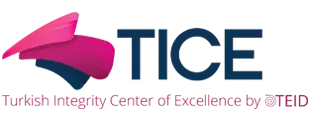TICE – Turkish Integrity Center of Excellence
What Are the Relevant Facts?
- The company has been practicing “clear-cutting” for many years and is in compliance with governmental regulations.
- Environmentalists’ strength and pressure have been increasing to such a degree they cannot be ignored by the company.
- The company feels it needs to counteract the negative press from the environmentalists.
- The negative press seems to have reduced sales and may lead to increased governmental regulation.
- Thomas feels that the company’s image would be more favorable if land were donated to the government for wilderness areas.
- The land they intend to donate is not profitable to the company.
- Hollis and John question the wisdom of this approach, but the company president insists on this approach.
- As a Sierra Oub member, John may have a personal conflict with the way that the image-building campaign is being approached.
What Are the Ethical Issues?
- Is clear-cutting an appropriate practice for the company?
- Should unprofitable land be donated as an appeasement to the environmentalists?
- Is it appropriate for John to work on the campaign?
- Should the company use advertising to blot out the effects of negative press?
Who Are the Primary Stakeholders?
- Bob Thomas
- George Hollis
- John Davidson
- Company employees
- Communities supported by logging activities
- Environmentalists
- Government regulators
What Are the Possible Alternatives?
- Stop or reduce the practice of clear-cutting.
- Use alternate methods to build the image of company.
- Continue with the suggested campaign using John.
- Continue with the suggested campaign without using John.
What Are the Ethics of the Alternatives?
- Ask questions based on a “utilitarian” perspective (costs and benefits). For example:
- Which possible alternative would provide the greatest benefit to the greatest number?
- How would costs be measured in this vignette? How much value should be placed on (a) the environment and (b) jobs supporting the local communities?
- Do the benefits of protecting the environment outweigh the economic impacts of this situation?
- Ask questions based on a “rights” perspective. For example:
- What does each stakeholder have the right to expect?
- Which alternative(s) would you no want imposed on you if you were John? Mr. Hollis? Mr. Thomas? The environmentalists? The government regulators? A company employee? A member of the surrounding communities?
- Ask questions based on a “justice” perspective (benefits and burdens). For example:
- Which alternative distributes the benefits and burdens most fairly among the stakeholders?
- Which stakeholders carry the greatest burden if the suggested campaign is carried out?
- Which stakeholders carry the greatest burden if the practice of dear-cutting is continued?
- Which ethical theories (utilitarian, rights, justice) make the most sense to you as they relate to this situation?
What Are the Practical Constraints?
- John needs to consider what will happen if he does or does not participate in the suggested campaign.
- The issue of clear-cutting will probably come up again. Should it be dealt with at the Board level?
- The environmentalists may pick up the campaign and turn it against the company.
What Actions Should Be Taken?
- What actions should be taken by John, the company, and the environmentalists?
- Which alternative would you choose if you were in John’s position? Why would you make that choice?
- Which alternative would you choose if you were in Mr. Hollis’s position? If you were a company board member? Why would you make that choice?
- Which ethical theories (utilitarian, rights, justice) make the most sense to you as they relate to this situation?
